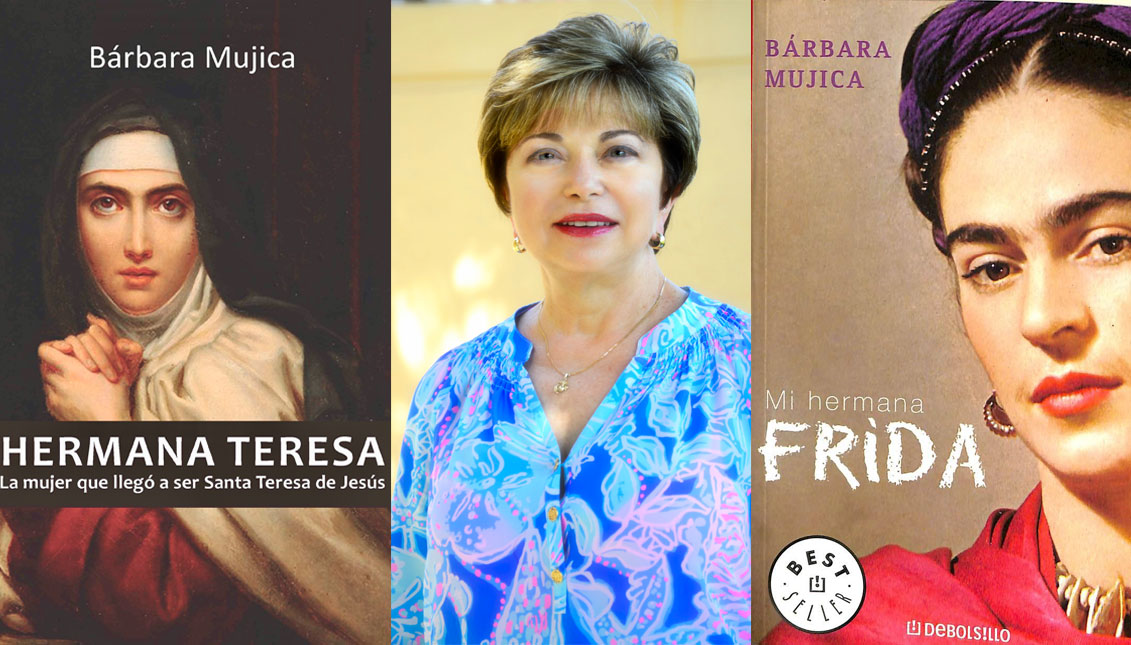
Novelist Barbara Mujica will visit Philadelphia
The author of biographical novels about Frida and Saint Teresa of Avila, Barbara Mujica, will give two talks about her books and the role of fiction in…
Those of us who have been raised in Catholicism tend to believe that all saints - starting with Jesus Christ - lived their lives unsullied, good from head to toe, incorruptible and free from all mundane vanity. It turns out that is not the case.
The truth is that all saints were preceded by their human shapes - very human in spite of many believers - that walked the earth like any other mortal.
Award-winning writer and Georgetown University professor Barbara Mujica recounts one of those stories in Sister Teresa, her biographical novel on Teresa Sánchez de Cepeda y Ahumada, the founder of the order of the Discalced Carmelites, better known as Saint Teresa of Ávila.
To Mujica, professor of the Spanish Golden Age of Literature at Georgetown, Saint Teresa´s story is above all that of a woman of a progressive mindset in the Spain of the sixteenth century.
Teresa was a middle class woman of Jewish origin. She was vain, flirtatious, sociable and critical of some practices of the Church in the height of Protestantism and the regime of the Inquisition. She was also an entrepreneur like no other in her time: after breaking with her convent, she founded an order of nuns and created another 17 in less than 20 years.
"To do that, she had to be a very strong woman," says Mujica in an interview with AL DÍA. “That's the character the author uncovers in her work. "I wanted to make the real Teresa to be known, that's why the book is called Sister Teresa, and not Saint Teresa," she adds.
To do so, the author created Angelica, "a narrator who loves Teresa but who is not so impressed with her spirituality." Through Angelica, Mujica portrays not only the life of the saint, but also that of an epoch in which the Catholic Church faced reforms.
RELATED CONTENT
Bárbara Mujica will be in Philadelphia to also talk about her other works: Frida (2002), a biographical novel translated into more than 17 languages and with which the author portrays — through the fictional story of her sister Cristina — the Mexican painter and activist in all her complexity, as "a very strong, but also very dependent woman".
But how close are these fictionalized versions of the flesh and blood characters? Mujica is aware that "a biographical novel is a risky project in the sense that one is reproducing someone's life and may be wrong,” but also knows that the novel is also a historical document that, in her case, is supported by the rigor of years of study and research.
In other words, fiction is a format that allows you to unveil the integral essence of those characters that have been disfigured over time by their own myths. "By inventing a character that tells the story, I can comment but also recognize that I do not know everything," she says.
The novel I am Venus (about the Spanish painter Diego Velázquez) and her story book Far away from my mother's home (soon to be released in Spanish), are the works that complete the material that will be discussed during her visit to the city.
The first event with the author and expert will be this Thursday, May 17 at 5:00 p.m. at the Barnes & Noble bookstore at Drexel University (33rd and Chestnut Street).
Her second reading and talk will be this Friday, May 18 at 2:00 p.m. at the Walnut Street West Library (201 South with 40th Street).
Mujica comes to Philadelphia invited by Israel Rolón-Barada, Drexel University's Spanish professor and a former student of hers, and with whom she will talk about the role of fiction in the reconstruction of stories such as Saint Teresa, Frida Kahlo, or Velázquez.











LEAVE A COMMENT: